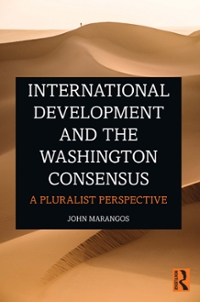Question
One could think of incentivizing people based on the endowment effect and loss aversion. For example, a company might, on January 1, 2023, deposit a
One could think of incentivizing people based on the endowment effect and loss aversion. For example, a company might, on January 1, 2023, deposit a year-end bonus to a special account in the name of the employee which could be accessed on December 31, 2023. The company stipulates that if the employee does not meet a particular productivity standard, the account will be closed on December 30, 2023 and the money returned to the company.
(1) Explain why this incentive might work better than the standard bonus arrangement (paid at the end of the year conditional on performance).
(2) If performance depends partly on chance (think an employee of a hedge fund), do you think this compensation scheme might impact risk-taking differently than the standard bonus?
Step by Step Solution
There are 3 Steps involved in it
Step: 1

Get Instant Access to Expert-Tailored Solutions
See step-by-step solutions with expert insights and AI powered tools for academic success
Step: 2

Step: 3

Ace Your Homework with AI
Get the answers you need in no time with our AI-driven, step-by-step assistance
Get Started


